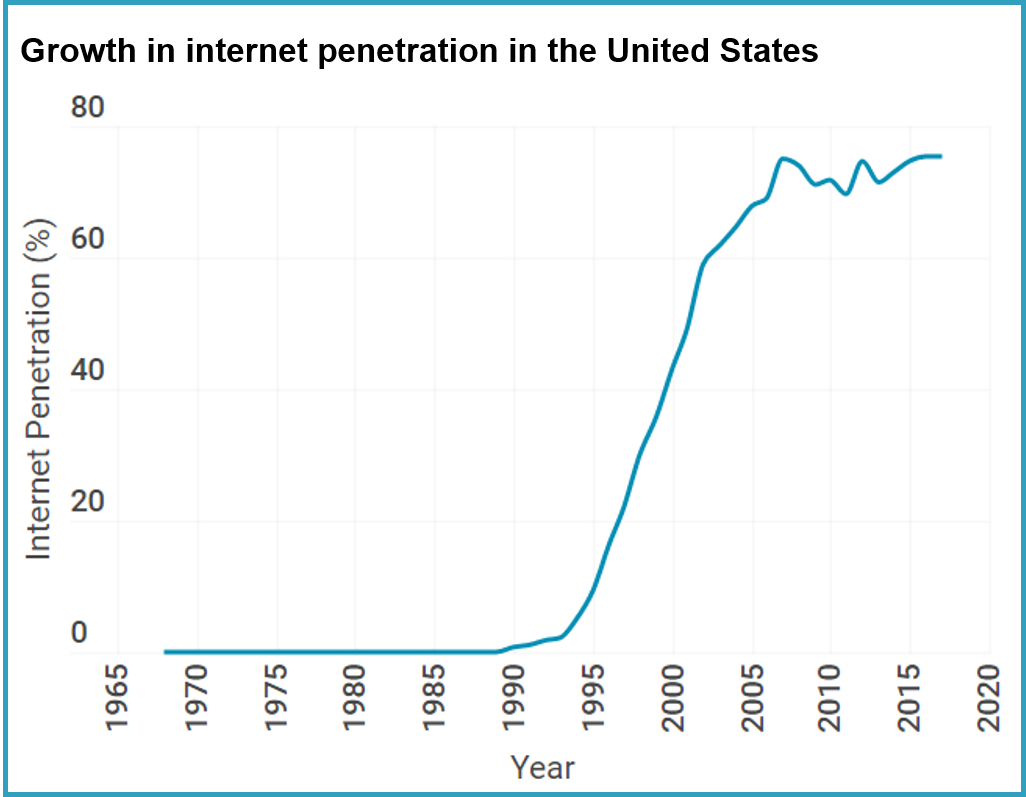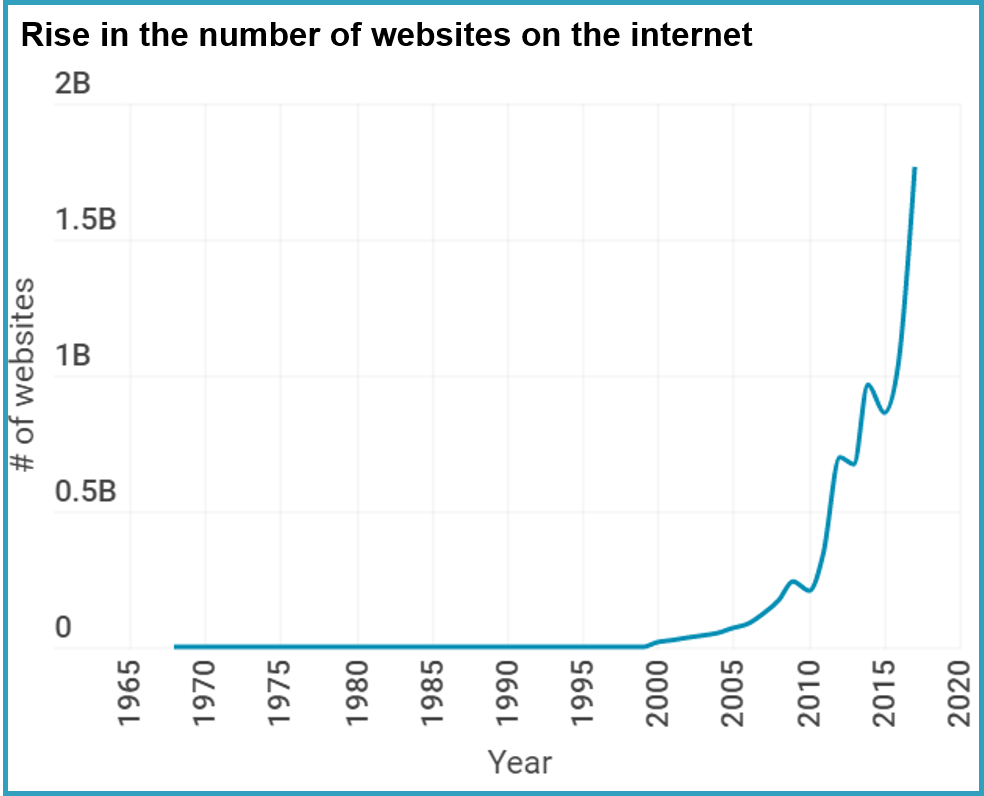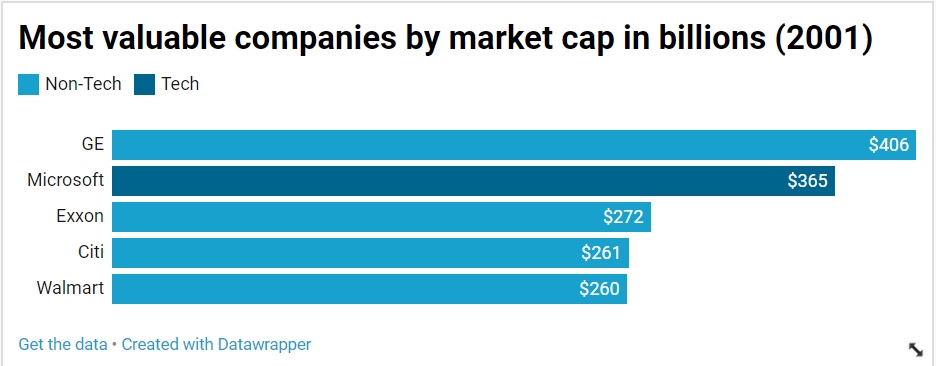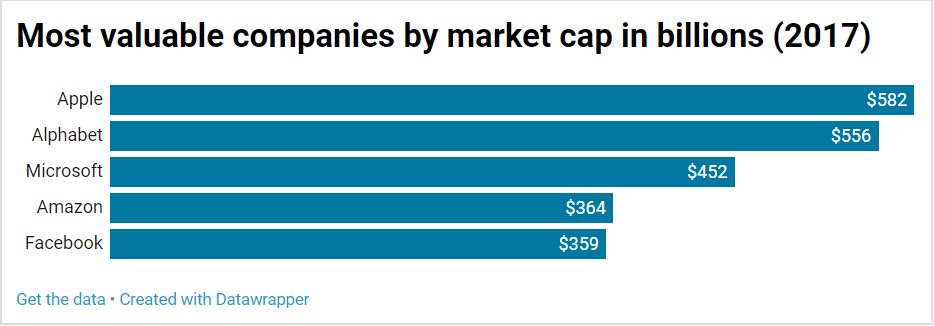The free and open Internet
The rise of internet companies

The origins of the internet dates to the late 1960s with the ARPANET (Advanced Research Projects Agency Network) that allowed computers to communicate on a single network. In the 70s, scientists Robert Kahn and Vinton Cerf extended this work to allow communication over multiple networks. For the next 2 decades, the internet was used primarily to share information within academic and research communities. Back then, information on the internet sat in silos on different machines. To get access to the information, people had to log into those machines, which sometimes were not inter-operable.
In 1989, Sir Tim Berners-Lee, a physicist working at CERN proposed the Hypertext Transfer Protocol (HTTP); what would become the basis of the World Wide Web.
The web was a combination of the work on hypertext , TCP and DNS. Sir Berners-Lee’s invention standardized the way messages were created, formatted and transmitted across the internet, effectively making it much easier for users to access and share information.
In the early days of the web's protocol, there were other alternatives. The web, and subsequently the internet, took off after CERN released the software, making it available to the public, royalty free. By the end of the year, the number of pages on the web had grown by 900% to 130.
Sir Berners-Lee's vision of the web was to create "a new way of thinking and a means to greater freedom and social growth”1. Just like the printing press, the internet revolutionized the way we create, discover and consume information with widespread effects on culture, business, and politics.


“...[the web's] true potential would only be unleashed if anyone, anywhere could use it without paying a fee or having to ask for permission…”
- Sir Tim Berners-Lee


Some of the world's largest companies like Alphabet and Facebook adopt this free model, making incredibly useful and beneficial services like messaging and communication, photo sharing, navigation, available for free. But are the services really free? We don't pay a subscription free to use a search indexed web. But we're still giving up something of value.
Your data.
In 2017, an Economist article was published. The value of data had exceeded the value of crude oil. Countries have gone to war for crude oil. The most valuable companies in the world hold petabytes worth of data on their users, and it becomes a cause for concern when corporations wield such power.
Recently, the US Department of Justice began antitrust proceedings of large technology companies to protect consumer rights.
In 2017, Facebook faced a major scandal regarding its data privacy policy. Cambridge Analytica, a now defunct political consulting firm improperly gained access to millions of users' Facebook data. With that data, the firm was able to create psychographic profiles, and identify users to target political messaging to for the 2016 US presidential elections. Some say the misuse of a threat to the US democracy.
As an internet user, you should be concerned about how these companies are collecting, storing, sharing and using your data.
So what can you do to protect yourself?
First, you could use the internet to get more educated on the issue.
As users of the internet, we need to be more careful about how we spend our time on the internet. The internet has a lot of benefits, so it would be unwise to stay offline, isolated from the latest information. But we can be more mindful about how we spend our time and share our data on the internet.
Also, the next time you visit the next website or download the latest smartphone app, take a moment before you accept to share your personal data. Ask yourself: are my benefits from this application equal to or greater than the app provider's benefits?
